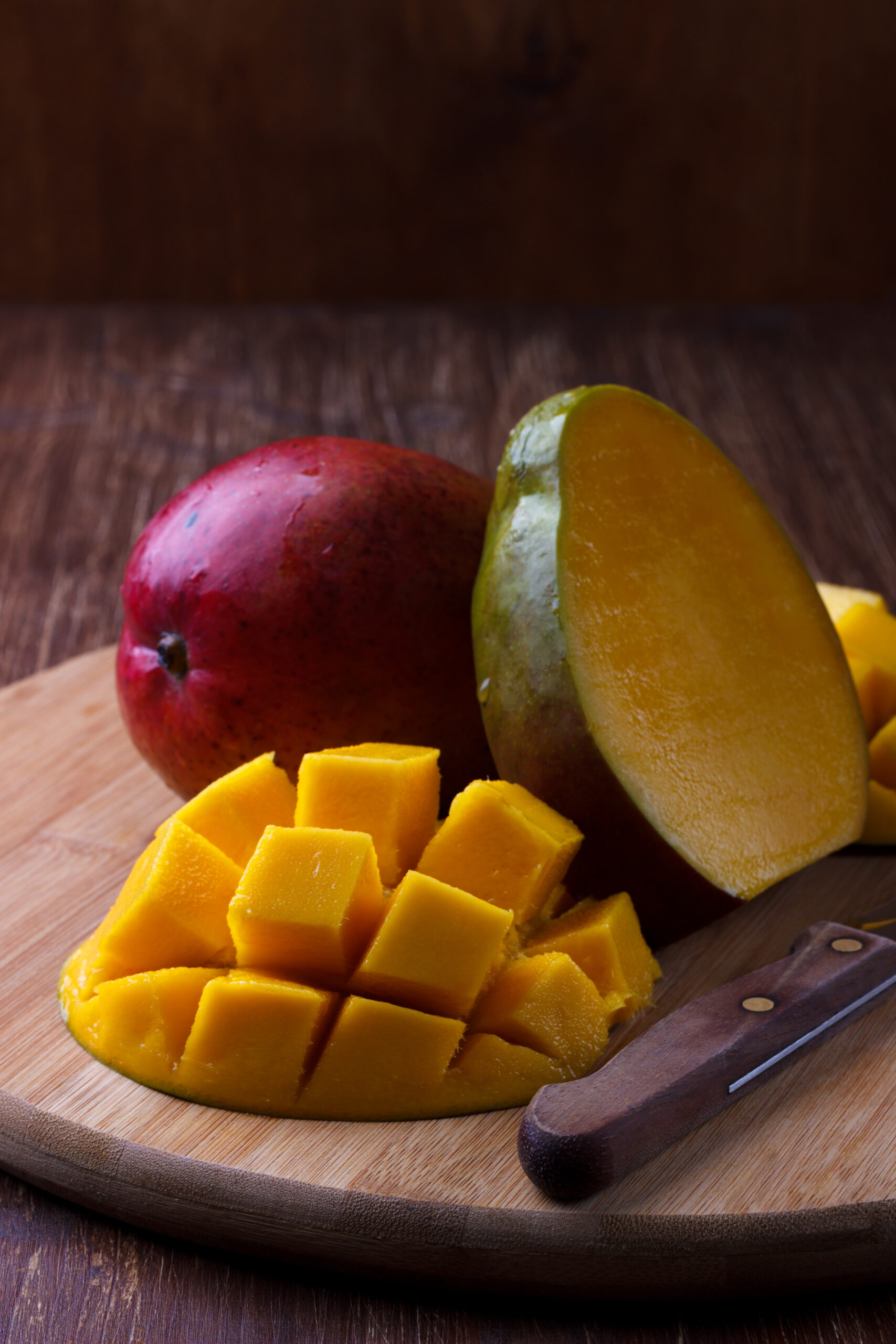Mango Mania: Fun Facts About Tropical Fruits and Their Most Popular Member
Mangos are one of the most popular tropical fruits in the world, known for their sweet, juicy flesh and unique flavor. But did you know that there are over 1,000 different varieties of mango, each with their own distinct taste and texture? From the vibrant yellow Ataulfo to the tangy Kesar, there’s a mango out there to suit every palate.
Aside from their delicious taste, mangos also have a number of fascinating facts and benefits. For example, did you know that the mango tree is considered sacred in Hinduism, and is often used in religious ceremonies? Or that mangoes are an excellent source of vitamins A, C, and D, as well as fiber and antioxidants? Whether you’re a die-hard mango fan or simply curious about this tropical fruit, there’s no denying that mangos are packed with interesting facts and information.
At HRmango, our co-founder, Damon, loves the beach and eating mangos. When at the beach, he is stress free. His worries float away as he relaxes in the sun and the water. He wanted to create a recruiting company that gave applicants and hiring managers that same relaxed feeling.
 In-Depth Look at Mangos
In-Depth Look at Mangos
Origin and History
Mangos are a tropical fruit that originated in India over 5,000 years ago. They were first cultivated in the northeastern region of India and were later introduced to other parts of the world by traders and explorers. Today, mangos are grown in many tropical and subtropical regions, including South America, Central America, the Caribbean, and parts of Africa and Asia.
Mangos are an important part of the Indian culture and have been mentioned in ancient Indian texts and mythology. They were considered a symbol of love and fertility, and were often given as a gift to newlyweds. In addition, mangos were used for medicinal purposes, such as treating diarrhea, dysentery, and other digestive problems.
Nutritional Facts
Mangos are a rich source of vitamins, minerals, and antioxidants, making them a healthy addition to any diet. One cup of sliced mangos contains approximately:
- 100 calories
- 1 gram of protein
- 25 grams of carbohydrates
- 3 grams of fiber
- 100% of the daily recommended value of vitamin C
- 35% of the daily recommended value of vitamin A
- 20% of the daily recommended value of folate
Mangos also contain small amounts of other vitamins and minerals, such as potassium, calcium, and iron.
Varieties of Mangos
There are many different varieties of mangos, each with its own unique flavor, texture, and appearance. Some of the most popular varieties include:
- Alphonso: This variety is known for its sweet, rich flavor and is often considered the “king of mangos.”
- Ataulfo: This variety is small and yellow, with a creamy texture and a sweet, buttery flavor.
- Haden: This variety is one of the most popular in the United States and has a sweet, juicy flavor.
- Keitt: This variety is large and green, with a mild, sweet flavor and a firm texture.
- Tommy Atkins: This variety is the most widely grown in the United States and has a mild, sweet flavor.
Overall, mangos are a delicious and nutritious fruit that can be enjoyed in a variety of ways, such as in smoothies, salads, or simply on their own.
 Mangos and Digestive Health
Mangos and Digestive Health
Mangos are a great source of dietary fiber, which is essential for maintaining good digestive health. One medium-sized mango contains about 3 grams of fiber, which is about 10% of the daily recommended intake for adults. Fiber helps to regulate bowel movements, prevent constipation, and promote the growth of healthy gut bacteria.
Mangos also contain enzymes that aid in the digestion of protein, which can help to reduce bloating, gas, and other digestive discomforts. Additionally, mangos are rich in antioxidants, which can help to reduce inflammation in the gut and protect against certain digestive disorders.
Mangos and Local Economies
Mango cultivation is a vital source of income for many small-scale farmers in tropical regions, particularly in Asia, Africa, and South America. According to Britannica, mangoes are one of the most important and widely cultivated fruits of the tropical world. The cultivation of mangoes provides employment opportunities for local communities, and the fruit is an important source of nutrition.
However, the mango industry faces challenges such as low productivity, poor quality, and limited access to markets. To address these challenges, initiatives such as the Mango Capacity Building Program have been launched to provide technical assistance and training to farmers. These programs aim to improve the quality and productivity of mangoes, increase access to markets, and promote sustainable practices.
Environmental Impact
The cultivation and transportation of tropical fruits such as mangoes have significant environmental impacts. Mango cultivation requires large amounts of water, fertilizers, and pesticides, which can lead to soil degradation, water pollution, and biodiversity loss. The transportation of mangoes from tropical regions to other parts of the world also has a significant carbon footprint.
To reduce the environmental impact of mango cultivation, sustainable practices such as organic farming and integrated pest management are being promoted. These practices reduce the use of chemicals and promote soil health and biodiversity. Additionally, initiatives such as fair trade certification and carbon offset programs are being implemented to reduce the carbon footprint of mango transportation and support the livelihoods of small-scale farmers.
In conclusion, the cultivation and transportation of tropical fruits such as mangoes have significant economic and environmental impacts. While the industry faces challenges, initiatives and sustainable practices are being implemented to promote the sustainability of the mango industry and support local communities.
HRmango takes time to get to know our applicants and clients. We take the busy recruiting work off of HR teams and help them with that perfect employee match. Letting our clients be more focused on retaining their excited new hires. Hopefully giving all involved a little more time to enjoy the beach and some mangos! We’d love to hear from you on how we can help.


